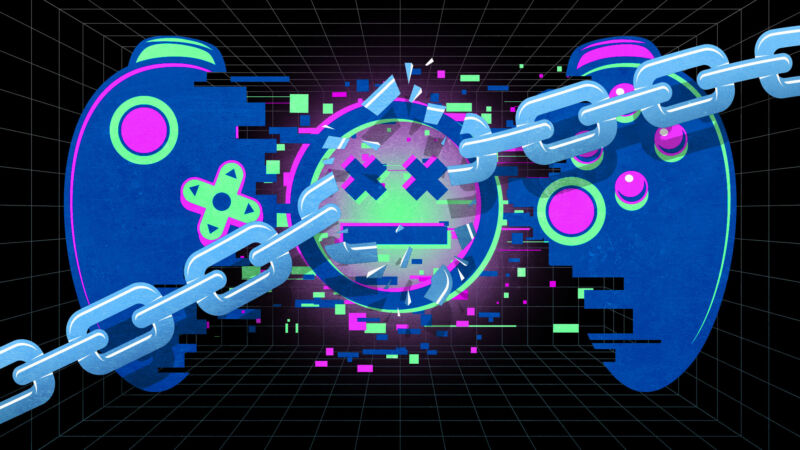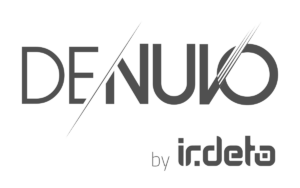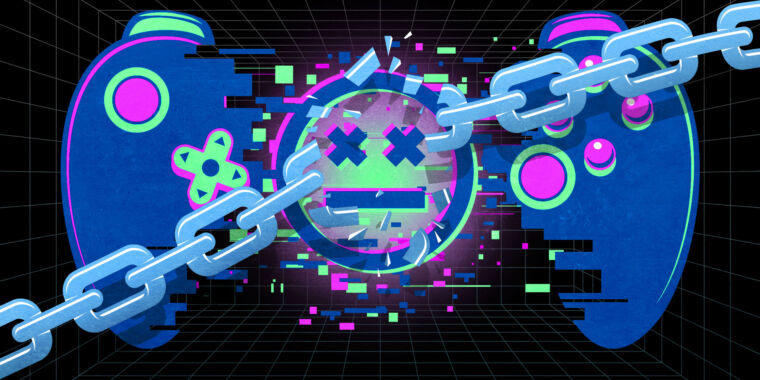
Aurich Lawson | Getty Images
Simply mentioning the name “Denuvo” among some gamers is pretty much guaranteed to get you an instant, strong reaction. Just look at the comment threads underneath any Ars article covering Denuvo and you’ll see plenty of complaints about the DRM-enhancing anti-piracy technology.
Irdeto, the company that acquired Denuvo in a 2018 purchase, doesn’t generally make a habit of commenting at length on this reputation (or its secretive DRM schemes) in the public press. So when Irdeto Chief Operating Officer of Video Games Steeve Huin agreed to defend his company publicly in an exclusive interview with Ars Technica, I jumped at the chance to talk to him.
Irdeto
As it turns out, the people who make Denuvo are keenly aware of their image in the wider gaming world. “In the pirating/cracking community, we’re seen as evil because we’re helping DRM exist and we’re ensuring people make money out of games,” Huin told Ars.
But Huin stressed to Ars that he sees Denuvo as a positive force for the gaming community as a whole. “Anti-piracy technologies is to the benefit of the game publishers, [but also] is of benefit to the players in that it protects the [publisher’s] investment and it means the publishers can then invest in the next game,” he said. “But people typically don’t think enough of that.”
“Whether people want to believe it or not, we are all gamers, we love gaming, we love being part of it,” he continued. “We develop technologies with the intent to make the industry better and stronger.”
Trust but verify
Aside from generalized philosophical discussions over whether DRM should exist at all, by far the most substantive complaints about Denuvo’s tech are about its alleged impact on game performance. Sometimes these accusations come from the crackers themselves and have to be weighed against strong denials from Denuvo and the game’s developer. Other times, the accusations come from game makers, like outspoken Tekken 7 Director Katsuhiro Harada, who said in a 2018 tweet thread that the game’s “anti-tamper third-party middleware” (i.e., Denuvo) was responsible for “frame rate drops” in the game.
In 2019, an Ars analysis comparing a Denuvo-free copy of Batman: Arkham Knight on the Epic Games Store to a Denuvo-laden copy from Steam found no difference in performance. But a series of analyses from YouTube channel Overlord Gaming in 2018 found significant performance differences in games measured directly before and after Denuvo protection was removed.
In our chat, Huin implied that this kind of public analysis was not very useful because “gamers [almost] never get access to the same version of [a game] protected and unprotected. There might be over the lifetime of the game a protected and unprotected version, but these are not comparable because these are different builds over six months, many bug fixes, etc., which could make it better or worse.”
In the case of anti-tamper, I think there is a clear statement that there is no perceptible impact on gameplay because of the way we do things.
Irdeto COO of Video Game Steeve Huin
Huin insisted that Irdeto puts in “the effort of applying the security and validating that the performance is as it was and is not impacted… In the case of anti-tamper, I think there is a clear statement that there is no perceptible impact on gameplay because of the way we do things.”
After years of public uproar over Denuvo’s alleged performance impact, though, Huin said he knows much of the gaming community won’t take him at his word. “Our voice is unfortunately not sufficient to convince people because we’re not trusted in their mind as a starting point in that debate,” he said.
To get around that mistrust, Huin said Irdeto is working on a program that would provide two nearly identical versions of a game to trusted media outlets: one with Denuvo protection and one without. After that program rolls out, hopefully sometime in the next few months, Huin hopes independent benchmarks will allow the tech press to “see for yourself that the performance is comparable, identical… and that would provide something that would hopefully be trusted by the community.”

